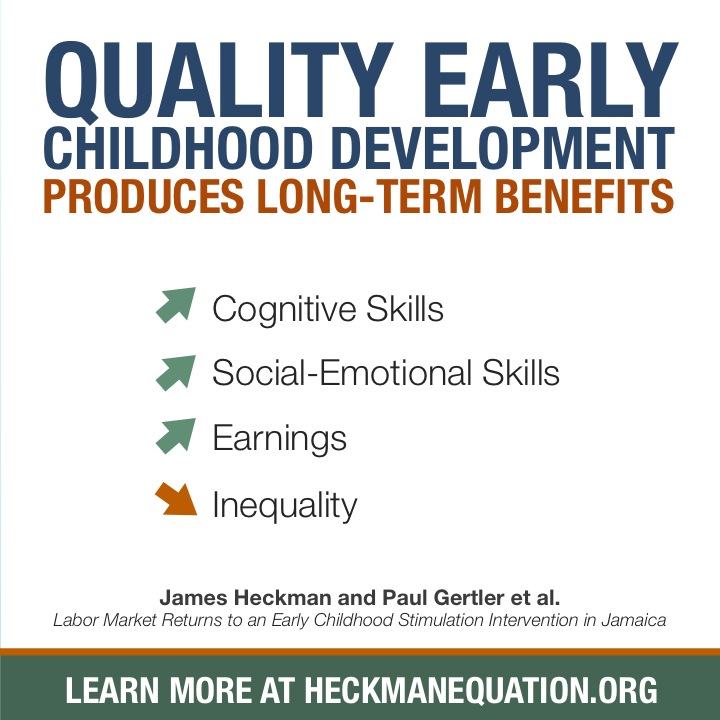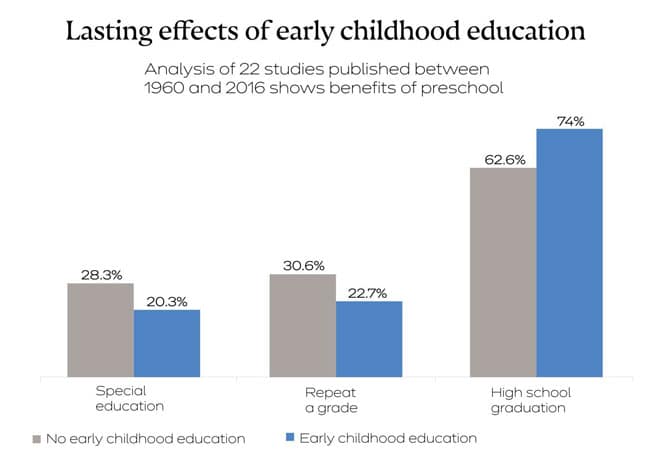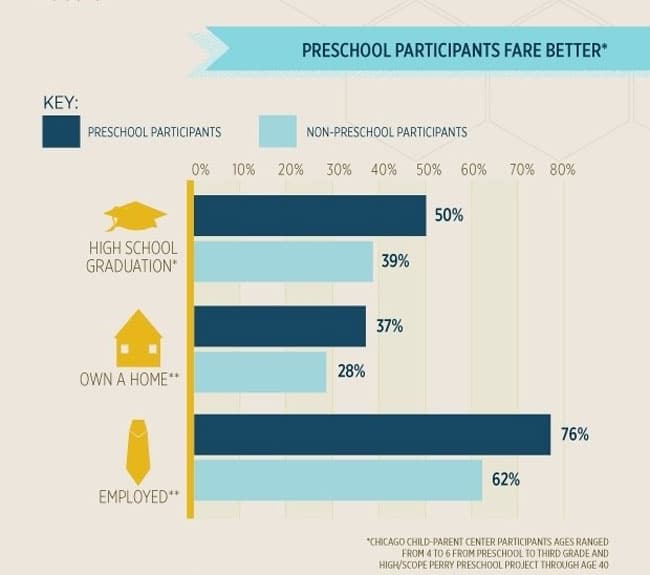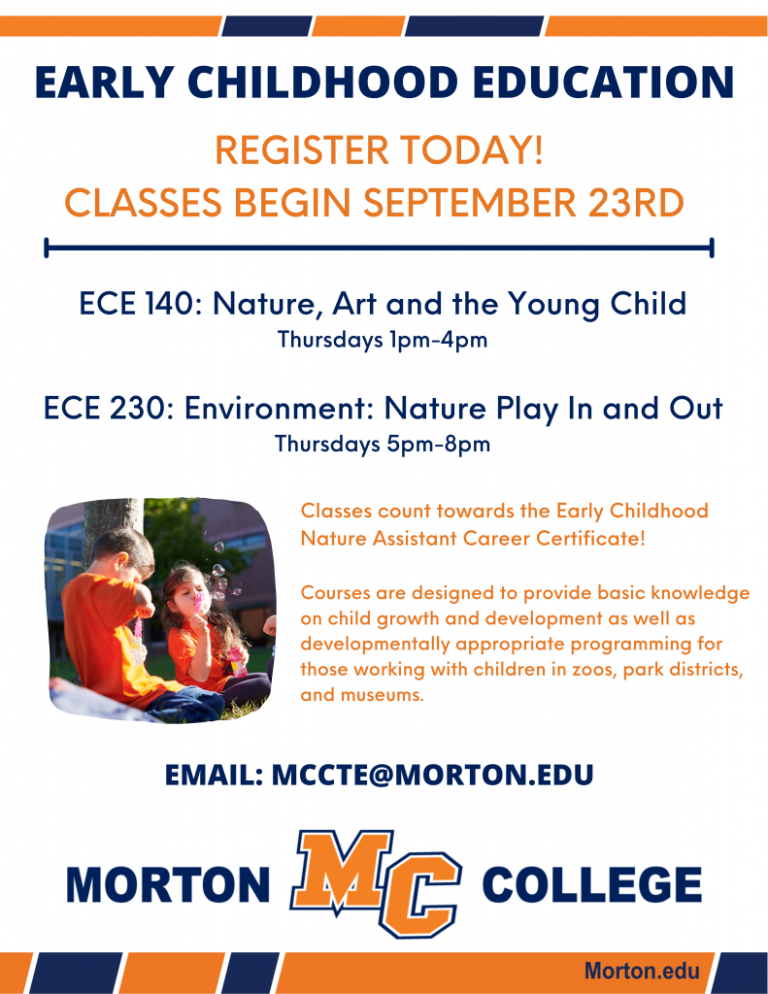What are the Long-Term Benefits of Early Childhood Education: Unlocking Future Potential

Early childhood education has long-term benefits for children’s academic, social, and emotional development. These benefits include improved academic performance, higher graduation rates, and increased opportunities for future success.
Early childhood education is critical in shaping the future of children’s academic, social, and emotional development. Studies have shown that children who receive quality early education are more likely to perform better academically, have higher graduation rates, and have increased opportunities for future success.
Moreover, early education promotes social and emotional development, leading to better communication skills, self-esteem, and empathy. These skills are essential for children to thrive in both their personal and professional lives. We will explore the long-term benefits of early childhood education and why it is crucial to invest in the education of our youngest learners.
The Importance Of Early Childhood Education
Early childhood education plays a crucial role in laying the foundation for a child’s future success. It is during these formative years that children develop essential skills and attitudes that will shape their academic and social experiences throughout their lives.
Setting The Foundation For Learning
Early childhood education provides a nurturing and stimulating environment that fosters a love for learning. Through play-based activities and interactive experiences, young children begin to develop cognitive skills such as problem-solving, critical thinking, and creativity. These early experiences create a solid foundation for future academic success.
Development Of Social Skills
Early childhood education also plays a vital role in the development of social skills. In a supportive classroom setting, children learn to cooperate, share, and communicate effectively with their peers. These interactions help to build empathy, compassion, and conflict resolution skills, setting the stage for positive social relationships in the future.
Cognitive Advantages In Later Years
Early childhood education provides numerous long-term benefits, including cognitive advantages that significantly impact a child’s later years. These advantages encompass enhanced problem-solving abilities and improved academic performance.
Enhanced Problem-solving Abilities
Early childhood education fosters the development of critical thinking skills and enhances problem-solving abilities. Through engaging activities and interactive learning, children are encouraged to think creatively and develop strategies to solve complex problems. This early exposure to cognitive challenges lays a strong foundation for future academic and professional success.
Improved Academic Performance
Children who participate in early education programs are more likely to demonstrate enhanced academic performance in later years. They develop strong foundational skills in reading, writing, and math, which provide a crucial advantage in school and beyond. This early academic proficiency lays the groundwork for future educational achievements and intellectual growth.
Emotional And Behavioral Benefits
Early childhood education provides numerous long-term benefits, particularly in terms of emotional and behavioral development. These benefits have a lasting impact on a child’s well-being and future success. Let’s delve into the specific emotional and behavioral advantages that early childhood education offers.
Better Emotional Regulation
Early childhood education fosters better emotional regulation in children. Through social and emotional learning activities, children learn to identify and express their feelings in a healthy manner. They develop emotional intelligence and the ability to manage their emotions effectively, which is crucial for their overall well-being and interpersonal relationships.
Reduced Behavioral Issues
Participation in early childhood education is associated with reduced behavioral issues. Children exposed to quality early education programs are more likely to exhibit positive behavior and have lower rates of aggression and acting out. This early foundation in social and emotional skills helps in creating a positive behavioral trajectory that can benefit them throughout their lives.
Long-term Health And Well-being
When it comes to the long-term health and well-being of individuals, early childhood education plays a crucial role in shaping their future. Research has shown that children who have access to quality education at a young age are more likely to experience a range of long-term health benefits, setting the stage for a healthier and more fulfilling life.
Lower Risk Of Chronic Diseases
Early childhood education has been linked to a lower risk of chronic diseases later in life. By instilling healthy habits and behaviors from a young age, such as regular exercise, balanced nutrition, and proper hygiene, children are better equipped to maintain a healthy lifestyle as they grow older. This foundation of good health can significantly reduce the risk of developing chronic conditions such as obesity, diabetes, and heart disease in adulthood.
Improved Mental Health
In addition to physical health benefits, early childhood education also contributes to improved mental well-being. By providing children with a supportive and stimulating environment, they are more likely to develop strong social and emotional skills, resilience, and self-regulation. These factors can help prevent mental health issues such as anxiety, depression, and behavioral disorders in the long term, promoting overall well-being.
Economic Impact Of Early Childhood Education
The Economic Impact of Early Childhood Education is significant, with long-term benefits that extend beyond individual development. Let’s explore how early childhood education contributes to the economy.
Higher Earning Potential
Early childhood education lays the foundation for future success, leading to higher earning potential in adulthood.
Reduced Social Costs
Investing in early childhood education results in reduced social costs associated with crime, healthcare, and welfare services.

Credit: gafcp.org
Breaking The Cycle Of Poverty
Increased Opportunities For Success
Early childhood education provides a strong foundation for children to excel academically and socially.
Reduced Income Disparities
By investing in early childhood education, we can bridge the gap between lower and higher-income families.
Enhancing Future Societal Contributions
Building A Skilled Workforce
Early childhood education lays the foundation for a skilled workforce, equipping children with essential cognitive, social, and emotional skills. By fostering a love for learning, young minds are empowered to develop critical thinking, problem-solving, and creativity, which are vital for future workforce success.
Promoting Civic Engagement
Quality early childhood education nurtures a sense of civic responsibility and community involvement. Through encouraging empathy, cooperation, and communication, children learn the value of contributing to society, laying the groundwork for future engagement and participation in community affairs.

Credit: gafcp.org
Investing In The Future Generation
When we invest in early childhood education, we are truly investing in the future generation. By providing quality education to young children, we are laying the foundation for a brighter tomorrow.
Creating Sustainable Communities
Early education fosters strong communities by nurturing young minds and preparing them for success.
Ensuring Long-term Prosperity
Investing in early childhood education sets the stage for sustainable economic growth and prosperity in the long run.

Credit: www.edweek.org
Frequently Asked Questions
What Are The Long Term Benefits Of Preschool?
Preschool provides long-term benefits for children by enhancing their cognitive, social, and emotional development. It fosters essential skills such as communication, problem-solving, and creativity. It also helps children build confidence, self-esteem, and independence, which are crucial for their future academic and personal success.
What Does Research Say About The Lasting Benefits Of Early Childhood Education?
Research shows that early childhood education provides lasting benefits, such as improved academic and social skills, higher earnings, and decreased involvement in crime. Children who attend high-quality preschool programs are more likely to succeed in school and life.
What Are Some Benefits Of Early Childhood Education For The Child?
Early childhood education benefits the child by promoting social skills, cognitive development, and emotional intelligence. It also enhances language and communication abilities, fosters creativity, and lays a strong foundation for lifelong learning.
What Are The Benefits Of Ece?
ECE benefits include early development, socialization, and cognitive skills, setting a strong foundation for future learning. It also supports working parents and provides a safe environment for children. ECE promotes lifelong success and prepares children for school.
Conclusion
Investing in early childhood education reaps countless benefits in the long run. The positive impact on cognitive development, social skills, and future academic success is undeniable. By providing a strong foundation during the formative years, we set children up for a lifetime of learning and growth.
Start investing in early education today.
Lorem Ipsum is simply dummy text of the printing and typesetting industry. Lorem Ipsum has been the industry’s standard dummy text ever since the 1500s, when an unknown printer took a galley of type and scrambled it to make a type specimen book.





